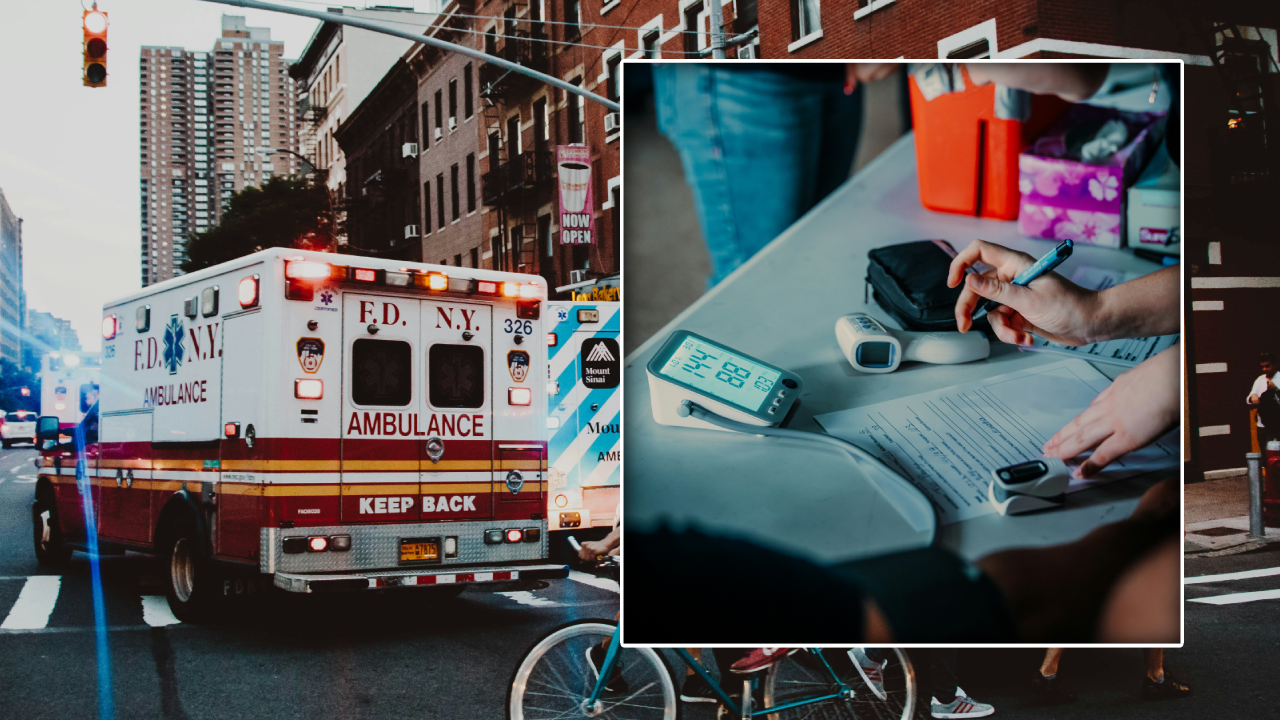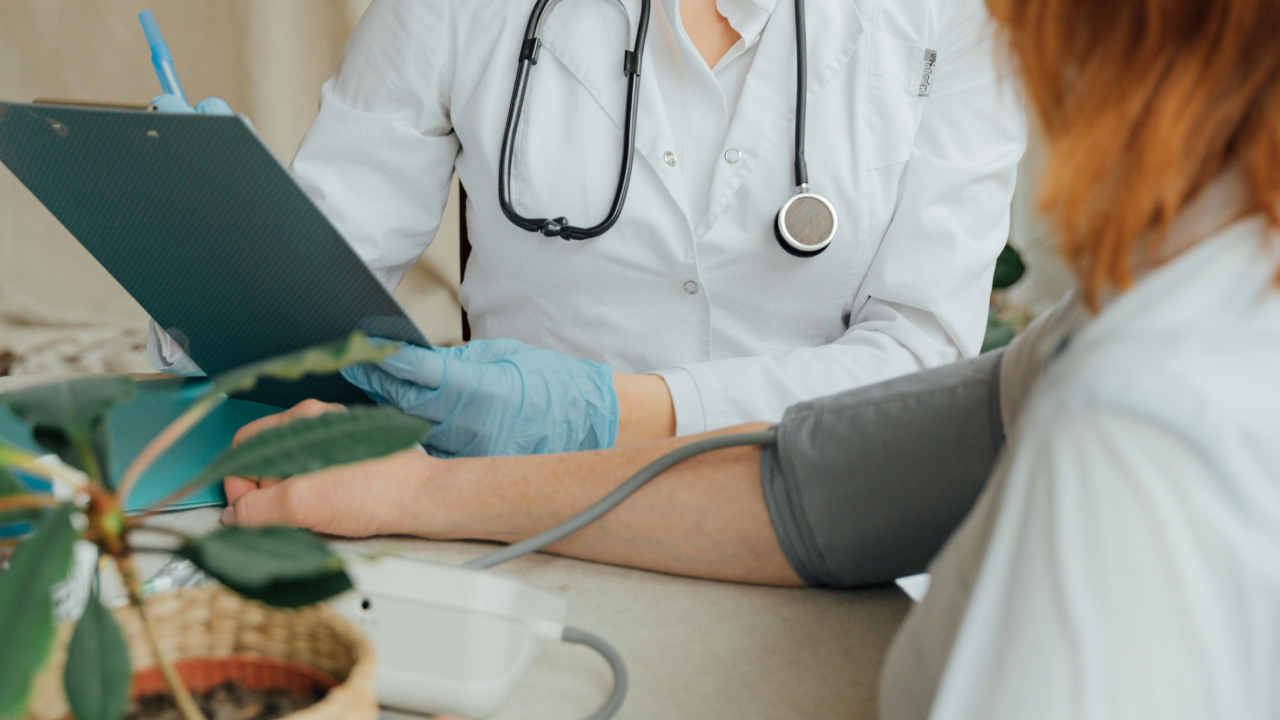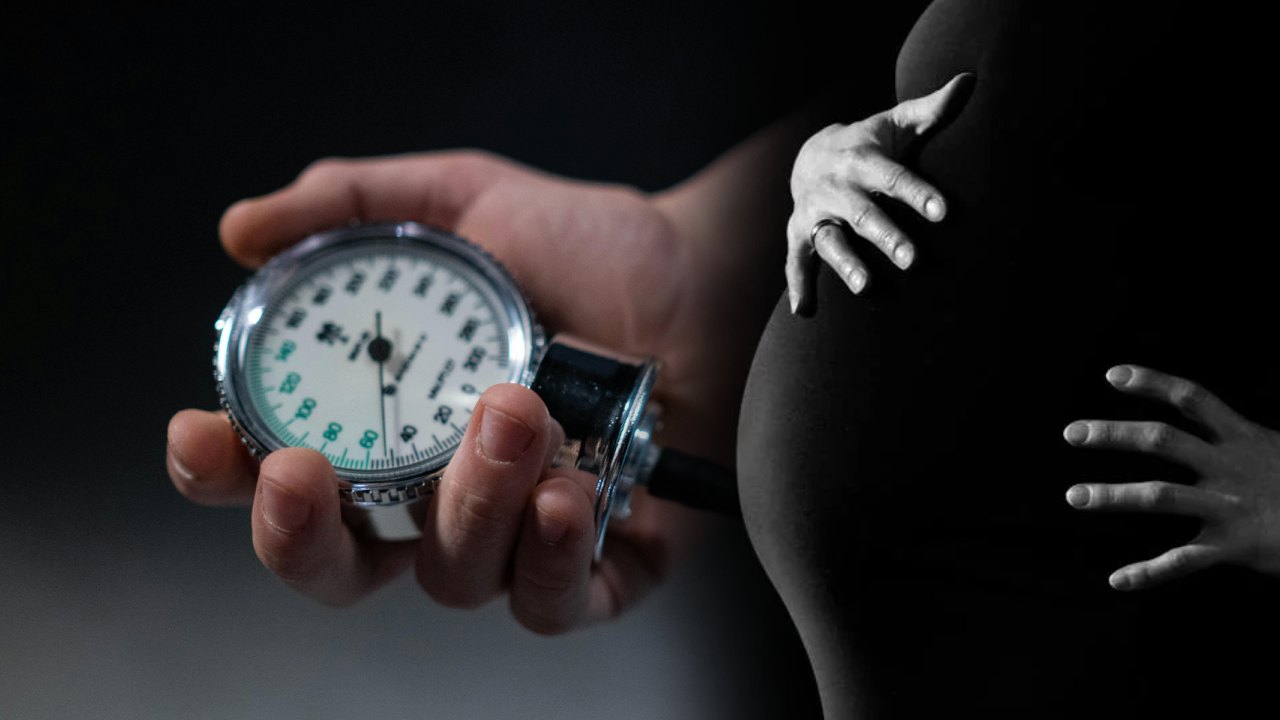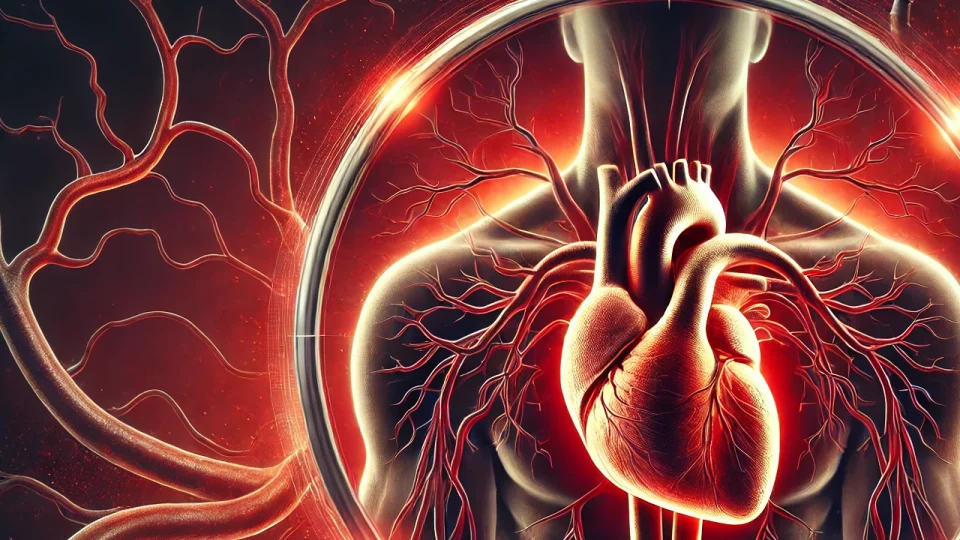High blood pressure, also known as hypertension, is a common yet serious medical condition that affects millions of people worldwide.
Table of Contents
What is High Blood Pressure?
Blood pressure is the force exerted by blood against the walls of your arteries as your heart pumps it around your body. Often referred to as the “silent killer” due to its asymptomatic nature, hypertension is a leading cause of heart disease, stroke, and kidney failure. Despite its prevalence, many people are unaware they have high blood pressure, making it crucial to understand what it is, its causes, and how it can be managed.
It is measured in millimeters of mercury (mmHg) and is recorded as two numbers: systolic pressure (the pressure when your heart beats) over diastolic pressure (the pressure when your heart rests between beats). A normal blood pressure reading is generally considered to be around 120/80 mmHg.
High blood pressure occurs when this force is consistently too high. According to medical guidelines, a reading of 130/80 mmHg or higher is considered hypertension. Over time, elevated blood pressure can cause damage to your arteries, heart, and other organs, leading to serious health complications.
Symptoms and Complications
Hypertension frequently goes unnoticed because it typically presents no obvious symptoms in its early stages. This lack of symptoms can lead to severe complications if left untreated. Understanding the potential signs and knowing when to seek medical attention is crucial for managing and preventing the risks associated with high blood pressure.
The gradual rise in pressure within the arteries may not trigger any immediate discomfort, making it easy to overlook. This is why regular blood pressure monitoring is essential, even when you feel healthy.
While many people with hypertension may not experience symptoms, there are instances where elevated blood pressure can lead to noticeable signs, particularly when it reaches more dangerous levels. These symptoms can be vague and may overlap with other conditions, but if you experience any of the following, it’s essential to consult with a healthcare professional:
- Headaches: One of the more common symptoms associated with severe hypertension is persistent headaches. These headaches are often described as dull and throbbing, typically occurring in the morning.
- Dizziness: Feeling lightheaded or dizzy can be a sign that your blood pressure is elevated. This symptom should not be ignored, especially if it occurs frequently.
- Shortness of Breath: Difficulty breathing or feeling short of breath, especially during physical activity or even at rest, can be a warning sign of hypertension and should be taken seriously.
- Nosebleeds: Although nosebleeds are generally not linked to high blood pressure, frequent or severe nosebleeds can sometimes occur in people with dangerously high readings.
- Blurred Vision or Visual Disturbances: High blood pressure can damage the blood vessels in the eyes, leading to vision problems such as blurriness or even vision loss in severe cases.
- Chest Pain: Experiencing chest pain or tightness can be a symptom of very high blood pressure and may indicate that the heart is struggling to cope with the increased workload.
- Fatigue or Confusion: Persistent fatigue, confusion, or an overall feeling of being unwell can sometimes be associated with extremely high blood pressure.
- Blood in the Urine: In some cases, high blood pressure can cause damage to the kidneys, which may result in blood appearing in the urine. This symptom is particularly concerning and warrants immediate medical evaluation.

Hypertensive Crisis
In rare cases, high blood pressure can escalate into a hypertensive crisis, which is a medical emergency. A hypertensive crisis is defined as a blood pressure reading of 180/120 mmHg or higher. This situation can lead to severe complications such as stroke, heart attack, or organ damage. Symptoms of a hypertensive crisis may include:
- Severe headache
- Severe anxiety
- Shortness of breath
- Chest pain
- Nausea or vomiting
- Seizures
- Unresponsiveness
Blood Pressure Categories Table
Below is a table summarizing the blood pressure limits for each category:
| Category | Systolic (mmHg) | Diastolic (mmHg) |
|---|---|---|
| Normal | Less than 120 | Less than 80 |
| Elevated | 120-129 | Less than 80 |
| Hypertension Stage 1 | 130-139 | 80-89 |
| Hypertension Stage 2 | 140 or higher | 90 or higher |
| Hypertensive Crisis | Higher than 180 | Higher than 120 |
1. Normal Blood Pressure
- Systolic: Less than 120 mmHg
- Diastolic: Less than 80 mmHg
Normal blood pressure indicates that your heart and blood vessels are functioning well, and there is no immediate concern. Maintaining a healthy lifestyle, including regular exercise, a balanced diet, and stress management, can help keep your blood pressure in this range.
2. Elevated Blood Pressure
- Systolic: 120-129 mmHg
- Diastolic: Less than 80 mmHg
Elevated blood pressure is a warning sign that you may be at risk for developing hypertension. Although it is not classified as high blood pressure yet, it signals that your heart is working harder than it should be. Lifestyle modifications, such as reducing salt intake and increasing physical activity, are recommended to prevent further increases in blood pressure.
3. Hypertension Stage 1
- Systolic: 130-139 mmHg
- Diastolic: 80-89 mmHg
Stage 1 hypertension is the initial level of high blood pressure. At this stage, your doctor may recommend lifestyle changes and possibly medication to control your blood pressure. Regular monitoring is crucial to prevent it from progressing to more severe stages.
4. Hypertension Stage 2
- Systolic: 140 mmHg or higher
- Diastolic: 90 mmHg or higher
Stage 2 hypertension is a more serious condition, often requiring both lifestyle changes and medication to manage. Consistently high blood pressure at this level significantly increases the risk of heart disease, stroke, and other health complications. It’s essential to work closely with your healthcare provider to control your blood pressure effectively.
5. Hypertensive Crisis
- Systolic: Higher than 180 mmHg
- Diastolic: Higher than 120 mmHg

Managing and Preventing High Blood Pressure
Managing and preventing high blood pressure requires a proactive approach that includes lifestyle changes, regular monitoring, and, if necessary, medication. By adopting healthy habits like eating a balanced diet, staying physically active, managing stress, and avoiding harmful substances, you can significantly reduce your risk of hypertension and its associated health problems. Regular communication with your healthcare provider is essential to ensure that your blood pressure remains under control and that you maintain a healthy, active life.
Managing High Blood Pressure
If you’ve been diagnosed with high blood pressure, managing it effectively is critical to reducing your risk of complications. Here are some strategies to help manage hypertension:
- Monitor Your Blood Pressure Regularly: Regular blood pressure checks are essential to keep track of your levels. Home monitoring devices make it easy to keep an eye on your blood pressure between doctor visits. Keeping a log of your readings can also help your healthcare provider make informed decisions about your treatment plan.
- Take Medications as Prescribed: If lifestyle changes alone aren’t enough to control your blood pressure, your doctor may prescribe medication. It’s important to take your medication exactly as prescribed and not to skip doses. Common types of blood pressure medications include diuretics, ACE inhibitors, and beta-blockers. Discuss any side effects or concerns with your doctor.
- Follow a Heart-Healthy Diet: If you have high blood pressure, it’s even more critical to adhere to a heart-healthy diet. In addition to following the DASH diet and reducing sodium, consider incorporating foods rich in potassium, such as bananas, sweet potatoes, and spinach. Potassium helps balance the effects of sodium and can help lower blood pressure.
- Stay Active and Exercise Regularly: Physical activity remains a key part of managing high blood pressure. Regular exercise helps your heart use oxygen more efficiently, which can reduce the force needed to pump blood. Start with moderate exercise and gradually increase intensity under your doctor’s guidance.
- Limit Caffeine and Alcohol: Both caffeine and alcohol can raise blood pressure, so it’s important to consume them in moderation. If you’re sensitive to caffeine, consider limiting your intake to avoid spikes in blood pressure.
- Manage Comorbid Conditions: If you have other health conditions, such as diabetes or high cholesterol, managing these effectively is essential for controlling blood pressure. Following your treatment plan for these conditions can prevent further complications and support overall cardiovascular health.
Preventing High Blood Pressure
Preventing high blood pressure involves making lifestyle choices that promote cardiovascular health. Here are some key strategies:
- Adopt a Healthy Diet: A balanced diet plays a crucial role in preventing hypertension. The DASH (Dietary Approaches to Stop Hypertension) diet, which emphasizes fruits, vegetables, whole grains, lean proteins, and low-fat dairy, is particularly effective. Reducing sodium intake is also essential, as excessive salt can raise blood pressure. Aim for less than 2,300 milligrams of sodium per day, or even lower if you’re at risk.
- Maintain a Healthy Weight: Carrying excess weight puts extra strain on your heart and increases your risk of developing high blood pressure. Even a small amount of weight loss can have a significant impact on blood pressure. Aim for a body mass index (BMI) within the healthy range (18.5 to 24.9).
- Stay Physically Active: Regular physical activity helps keep your heart strong and your blood pressure in check. Aim for at least 150 minutes of moderate-intensity exercise, such as brisk walking, cycling, or swimming, each week. Physical activity not only lowers blood pressure but also helps with weight management and reduces stress.
- Limit Alcohol Consumption: Drinking too much alcohol can raise your blood pressure. If you drink alcohol, do so in moderation—up to one drink per day for women and up to two drinks per day for men.
- Avoid Tobacco and Smoking: Smoking and tobacco use can raise your blood pressure and damage your blood vessels. Quitting smoking is one of the best things you can do for your heart and overall health. Even exposure to secondhand smoke should be minimized.
- Manage Stress: Chronic stress can contribute to high blood pressure. While it’s impossible to eliminate stress entirely, managing it through relaxation techniques such as deep breathing, meditation, or yoga can help. Prioritizing sleep and finding time for hobbies and social connections also contribute to stress management.

When to see a healthcare professional for High Blood Pressure
While regular monitoring and lifestyle changes can help manage blood pressure, there are times when it’s essential to consult a healthcare professional. Understanding when to seek medical advice is crucial to preventing serious complications like heart disease, stroke, and kidney failure.
Even if you feel healthy, it’s important to have your blood pressure checked regularly, especially if you have risk factors such as a family history of hypertension, being overweight, or leading a sedentary lifestyle.
Attention! For most adults, it’s recommended to have a blood pressure check at least once every two years. However, if you are over 40 or at higher risk, annual checks are advised.
If you measure your blood pressure at home and consistently get readings above 130/80 mmHg, it’s time to see a healthcare professional. While a single high reading might not indicate a chronic problem, persistent elevated levels should not be ignored.
Uncontrolled blood pressure can increase the risk of severe health problems, and your doctor may need to adjust your treatment plan. This might involve changing your medication, recommending additional therapies, or investigating underlying causes that could be contributing to your high blood pressure.

Pregnancy and High Blood Pressure
High blood pressure during pregnancy can pose risks to both the mother and the baby, leading to complications like preeclampsia or premature birth. If you are pregnant and notice elevated blood pressure readings or experience symptoms like severe headaches, swelling in the hands and face, or vision changes, seek medical advice immediately. Regular prenatal visits are crucial for monitoring blood pressure during pregnancy and ensuring the health of both mother and child.
Pre-existing Health Conditions
If you have other health conditions, such as diabetes, kidney disease, or a history of cardiovascular issues, managing your blood pressure becomes even more critical. High blood pressure can exacerbate these conditions, leading to more serious health problems. Regular consultations with your healthcare provider are essential to ensure your blood pressure remains under control and to adjust your treatment plan as needed.
